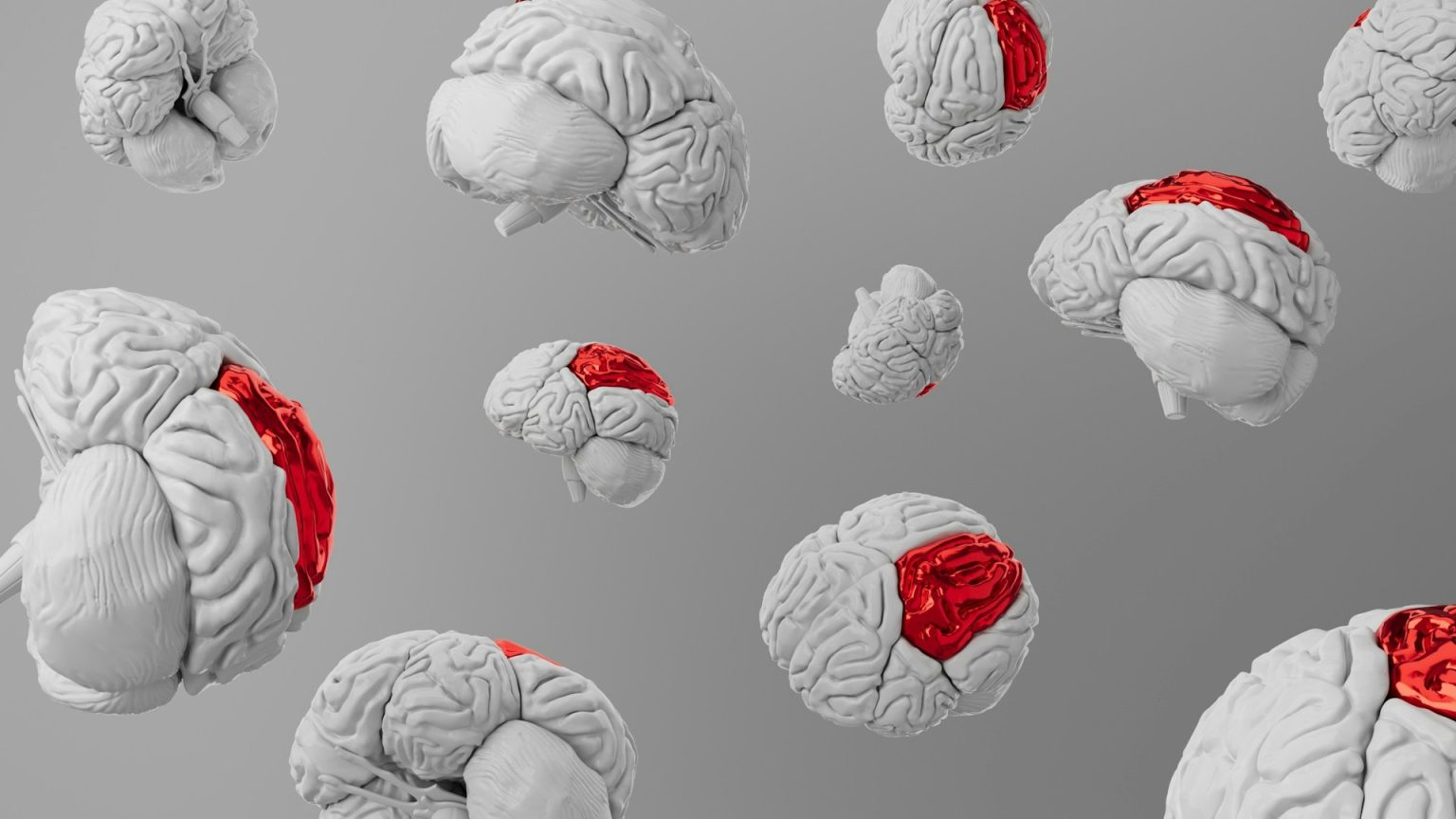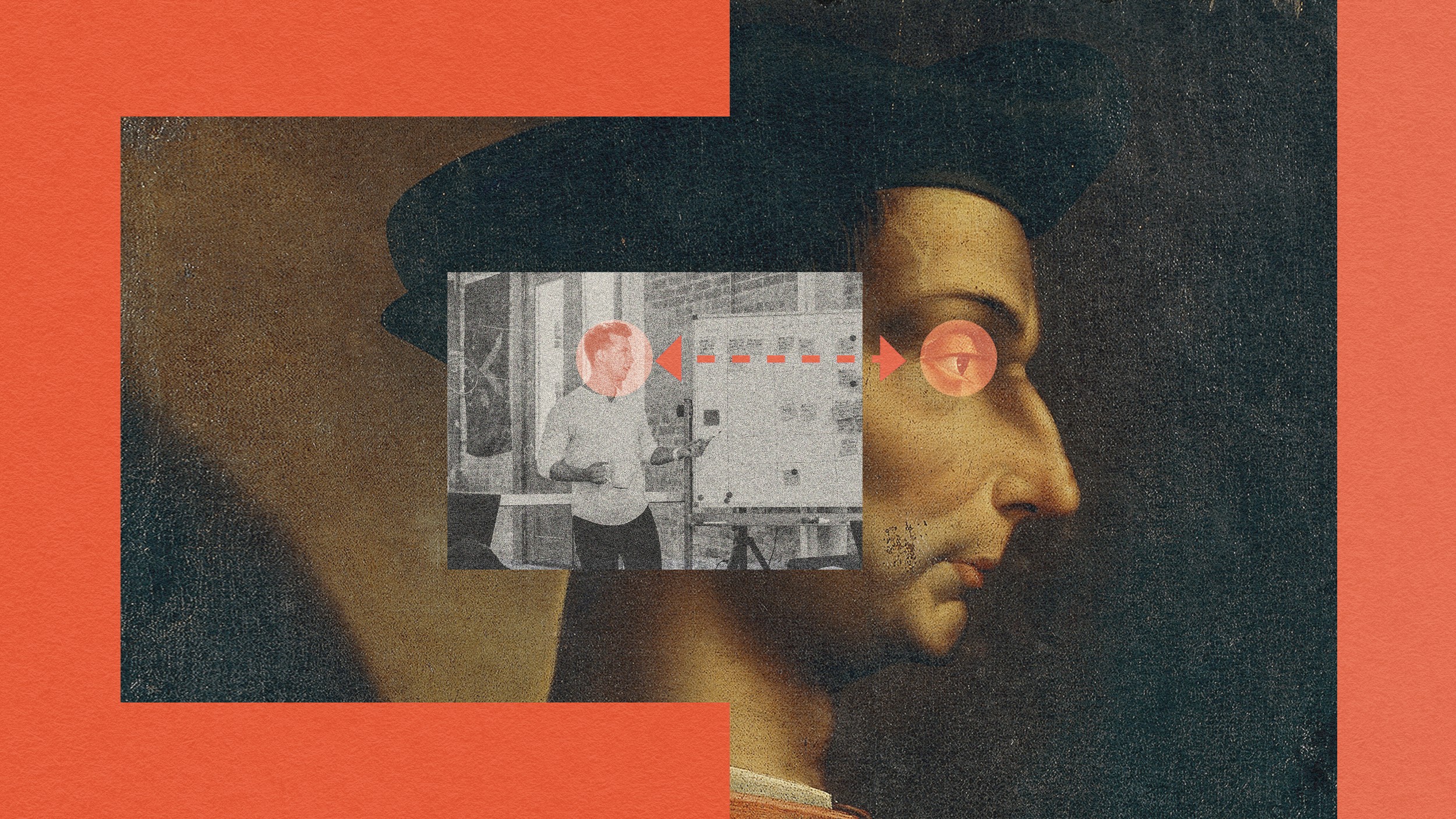Hack to the future: How to conquer your “projection bias”

- The projection bias is the mistaken belief that your future preferences and tastes will be the same as your current ones.
- One reason our predictions flop is that we assume our emotions will remain steady well into the future.
- While you can’t know your future self, you can better prepare for the inevitable changes ahead.
Evelyn went car shopping on a sunny summer day and drove off the lot in a new convertible. Sure, the payments were more than she had budgeted for, but the condition was mint, and it was nice to feel the wind in her hair. Thing is, Evelyn lives in Seattle, and these days, she’s not even sure the soft top still retracts.
Then there’s Nathan. Every month, he promises himself he’ll eat better, so he stocks up on salad at the grocery store while allowing himself just one bag of pretzels (for the odd cheat day). One week later, he’s throwing away an empty pretzel bag alongside a pound of wilted greens.
And let’s not forget about Madilyn. She landed an associate lawyer position at a prestigious law firm but soon found the long hours and demanding clients incredibly stressful. To calm her overworked nerves, she took up smoking but promised herself she would quit once she got a handle on things. Several years and one promotion later, Madilyn still keeps a pack quietly tucked away in her upper desk drawer.
What do these seemingly distinct — yet painfully relatable — stories have in common? Each person fell prey to a phenomenon known to behavioral economists as the “projection bias.”
Like other cognitive biases, projection bias represents a systematic error in our thinking. Specifically, it occurs when we mistakenly believe that our future selves will share the same tastes and preferences as our present selves. In doing so, we discount just how much our appetites can fluctuate and change.
However, the projection bias isn’t just a source of buyer remorse and uneaten lettuce. When considered alongside other sources of error, it reveals that our minds can be as unpredictable as the future outside them.

Man plans, the future laughs
Now you may be thinking, “Sure, but I know my tastes and preferences change over time. A quick tour through my attic or senior yearbook will handily prove that point.” But according to George Loewenstein, Ted O’Donoghue, and Matthew Rabin — the economists who first formalized the projection bias in a 2003 article for The Quarterly Journal of Economics — that’s not the issue.
The real problem, the trio stresses, is that we fail to realize the magnitude of these changes. Such miscalculations often lead to misguided purchases, overconsumption, wasteful habits, and not saving enough for the future.
Take the classic example of shopping while hungry. Most shoppers can attest that visiting the grocery store while peckish hurts their budget as much as their diet. It makes us much more likely to fill our carts with junk food, bulk items, and unnecessary purchases. The same impulse leads a famished restaurant patron to over-order, too. In both cases, people act as though the hunger they feel now represents the hunger their future selves will feel.
Research backs this up. Studies have shown that hungry participants will pay more for food than satiated participants — even if they won’t receive their snacks for another week. If the participants’ choices were rational, there would be little difference in the way they assign value. After all, a person’s current hunger should not affect how hungry they will be that far out. Hungry participants nonetheless overvalue the food. They project their current preference onto their future selves, just like hungry shoppers.
However, the projection bias can have more costly consequences than an evening spent in a calorie coma. Further research shows that, like our dear Evelyn, people are more likely to buy convertibles on sunny days and overspend on houses with swimming pools in the middle of summer. They are also likely to overestimate how much work they can accomplish on future days if well-rested, while underestimating how difficult it is to stop smoking on low-craving days.
Cloudy with a chance of emotional error
Loewenstein, O’Donoghue, and Rabin focused on the economics of projection bias in their paper. Still, they noted that it has implications for many of life’s decisions. This is because projection bias is one among an entire range of errors we face in what psychologists call “affective forecasting.”
Put simply, affective forecasting is the ability to predict one’s future emotional state. It sounds helpful, but it’s unfortunately not the sharpest blade in our mental toolboxes. In fact, our forecasts typically flop.
According to an evidence review by psychologists Daniel Gilbert and Timothy Wilson, one of the primary reasons our predictions flop is that they are based on the context in which they occur. This is why sunny days and summertime heat influence our preferences for cars and swimming pools.
When the human brain talks to itself, it does not always tell the truth.
Daniel Gilbert and Timothy Wilson
The present context includes our emotional state too. The more intense our feelings, the more long-lasting we mistakenly believe them to be. For instance, imagine you were diagnosed with a chronic kidney disease that required you to be on dialysis for the rest of your life. On a scale of 1 to 10 — 1 being utter misery and 10 being practically perfect in every way— how would you rate your quality of life moving forward?
A study asked this question of non-dialysis patients and found, unsurprisingly, that they weren’t hopeful. On average, they scored their perceived quality of life as 4. The researchers then asked chronic dialysis patients to rate their actual quality of life. These scores proved much better than non-patients imagined they would be, averaging around 6.
One reason for this discrepancy is that people focus on particular moments in their predictions — such as beginnings and endings — but not the total experience. Non-patients likely imagined how disturbing it would be to receive such a diagnosis. They then assume those immediate feelings will be representative of their lives moving forward.
Conversely, actual patients had likely found ways to cope with the struggles, raising their quality of life as they did and giving them a more representative sample of memories to draw from.
As Gilbert and Wilson note: “For many reasons, emotions tend to dissipate over time, which means that previews tend to emphasize precisely those moments that evoke the most intense emotion. This leads to one of the most pervasive errors of emotional prediction — the impact bias — which is the tendency for predicted emotions to be more extreme than actual emotions.”
This holds true for favorable predictions, too. We are ecstatic about life’s milestones: landing a new job, getting married, or having a child. And rightfully so. The error creeps in when we imagine that joy will continue unabated for our future selves. In reality, happiness fluctuates over time — even if overall life satisfaction remains steady.
“When the human brain talks to itself, it does not always tell the truth,” Gilbert and Wilson conclude.

Know thy future self
Unfortunately, such errors are built into human thinking and decision-making. That’s because, from an evolutionary perspective, there can be benefits. For instance, food was far less plentiful for past generations, so it makes sense that our ancestors would forecast today’s hunger as a likely possibility tomorrow or next week. Best to err on the side of caution and secure as much nutrition as possible now.
Even so, poor predictions on our part can have consequences — some relatively harmless, some more significant — down the road. So while we can’t completely eradicate the errors of affective forecasting from our mental calculations, there are still ways to mitigate their impact.
1. Trust your inner voice (to a point). It’s worth remembering that your predictions are rarely off the mark entirely. You’re correct to assume you’d be happier with a new car than a new tumor. But as Loewenstein, O’Donoghue, and Rabin remind us, we overestimate how changes will affect us. Simply taking the time to appreciate this fact can help us adjust our expectations for how purchases and life events — good or bad — will affect our future selves.
2. Set personal guardrails. You can also apply self-made rules that create contexts more conducive to accurate predictions. Folk knowledge has even given you a leg up here. For instance, sage shoppers have a series of precepts to curb overshopping. The most important is to never go shopping while hungry. They also recommended you create a list in advance, stick to it, and only visit the aisles necessary to secure the items on said list.
3. Take a breather. Another nugget of folk wisdom is to employ a cooling-off period before making large purchases like a car or home. To make these cool-offs more effective, try to imagine the purchase in a different context than the one experienced. Instead of imagining the wind in your hair, imagine the rush to put up the soft top amid an unexpected rain. Instead of imagining barbeques in the backyard, imagine dredging autumn leaves from the swimming pool. The goal here isn’t necessarily to dissuade you from the purchase; it’s to present that purchase in a broader array of potential contexts.
None of which is to say that these rules and mental reminders will give you open access to your future self. The future has a knack for laughing at our plans and predictions. However, by simply accepting that your preferences and tastes will change, you can better prepare for the inevitable. That, in turn, can save you a couple bucks on groceries or even help you side-step an unhealthy habit like smoking.
In both cases, it’s a net gain for your future — and present — self.






